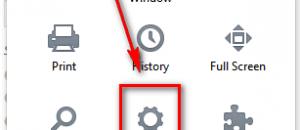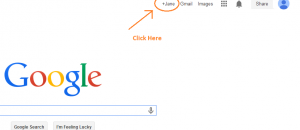The Americas and Europe have had their disagreements in the past; apparently, in this case, the “past” does not necessarily mean history, because recent events seem to foretell that the friction is alive and well! The EU is well known for its seeming hatred dislike of Microsoft (or Microsoft’s business practices, whichever you prefer). First in 2004 they demanded that Microsoft release a version of Windows XP for Europe without Windows Media Player. Microsoft compiled and created Windows XP N. Then in 2009 the EU decided that shipping Windows 7 with Internet Explorer was also illegal. At first Microsoft said they would give Windows 7 the XP treatment and release a version of Windows 7 without Internet Explorer, called Windows 7 E. Now no one can say Europeans don’t learn from their mistakes, because after the Windows XP N fiasco (no one bought it), Windows 7 E did not seem so appealing. So instead Microsoft is releasing an update to Windows 7 that presents the user with a randomly ordered list of other browses for users to install, including Chrome, Safari, Firefox, and Opera or to keep Internet Explorer. However, this article is not about taking sides and deciding if EU was/is right on regulating Microsoft or not; I just wanted to give you a brief history on the EU-Microsoft relationship and, at the same time, use it as a segway for the topic at hand: A European target on Google’s back.
In late 2006, students at a school in Turin, Italy uploaded a video to Google Video of them bullying an autistic schoolmate. As soon as Google was notified, they took down the video and helped Italian authorities track down the offenders. Most would agree Google reacted well in the situation and did right by taking down the video ASAP and helping Italian authorities; so the case closed, right? Wrong. A public prosecutor in Milan decided to indict four Google employees of criminal defamation and a failure to comply with the Italian privacy code over this incident. On February 24, a judge in Milan today convicted 3 of the 4 employees and found them guilty of failing to comply with Italian privacy code. All 4 were found not guilty of criminal defamation. Drama doesn’t end there, though.
On the same day as the conviction, Google announced on its Google Public Policy Blog that 3 European companies, Foundem, ejustice.fr, and Ciao! from Bing, levied complaints against Google to the EU. According to Google, the three companies are charging Google with demoting their websites in search results because they are vertical search engines. Neither the EU nor any of companies from Europe have confirmed this as of now, but one would hardly think Google would publicly make an announcement if it held no little truth to it.
It seems Europe has had its fun with Microsoft and is now moving on to Google. Is it that Europe hate American tech powerhouses, or Europe is just more strict about “fair competition” (whatever that term may imply – keep in mind much of Europe is less capitalistic in terms of markets than the USA)? In that regard, it should also be mentioned that some of the companies that supposedly levied complaints against Google (remember the complaints have not been confirmed by the EU yet) have ties to Microsoft so to say Europe has an agenda against American companies would a tiny, itty-bitty stretch of the truth.
Feel free to share your thoughts on the matter in the comments below.
(Please keep in this mind this article is not pro/anti Europe, America, Google, Microsoft, etc. The humor in the article is just that – humor. We do no intend to take sides; rather we are just reporting the juicy details.)
[via PCMag.com]

 Email article
Email article



